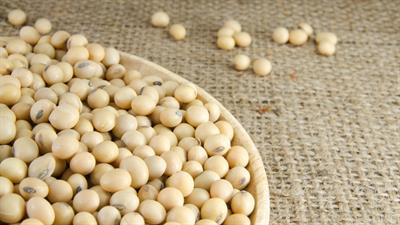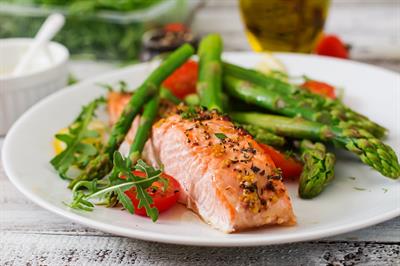Busted: Common Myths About Cancer and Diet
July 28, 2017 | Author: BeatCancer.Org
We understand there’s a great deal of conflicting information about nutrition out there, especially when it comes to cancer. There are certain beliefs about how cancer starts and spreads, but these, while rooted in old theories, are scientifically wrong. These myths often lead to needless worry and often hinder proper nutrition, fueling the risk of cancer. There are many cancer-causing foods lurking out there that we are yet to remove from our plates.
To help you separate the myths and truths, we’ve compiled a list of common misconceptions and the facts behind them.
Myth #1: “Soy foods produce cancer.”
Believe it or not but it is safe to eat soy! Better yet, it won’t give males breasts, even though that is another common myth floating around. Confusion about soy comes from the term “phytoestrogens.” Do note that phytoestrogens are not the same things as female estrogens. In short, soy food does not contain estrogen. In fact, studies found that soy protects against endometrial cancer.1
Myth #2: “Cancer survivors only eat organic produce.”
Even though organically grown produce has lower pesticide residues, following an organic diet doesn’t necessarily mean it’s healthy. If you aren’t eating healthfully, your risk of cancer is greater. Research has found that the organic and conventionally grown foods are not significantly different in their nutrient content.2
Myth #3: “It’s not what I eat, it’s how much I eat.”
While it is true that eating and gaining weight and becoming obese is a cancer risk, it is also about what you’re eating that contributes to that risk, too. For example, cutting back on meat, dairy, and eggs can significantly cut down your risk of a number of cancers, as well as diabetes and heart disease.
These animal proteins increase the level of IGF-1 in our bodies, which is a cancer-promoting growth hormone that is involved in the acquisition and progression of malignant tumors.3 Don’t let the myths about a vegetarian and vegan diet hinder you—these diets can be varied, healthy, and delicious! Better yet, they help to prevent and even cure cancer.4

Myth #4: “I should ditch processed meat for fish.”
Yes, it’s true that processed meat was classified as a group 1 carcinogen, and you’re right to take it off your plate entirely. However, that doesn’t mean that other meat is safe to eat. It is believed that farmed salmon not only lacks vitamin D, but it is also often contaminated with carcinogenic chemicals, pesticides, antibiotics, and flame retardants.5
Myth #5: “Acidic foods do not contribute to the growth of cancer.”
The relationship between an alkaline diet and cancer has been in the news lately. It is believed that cancer only thrives in an acidic environment and, by default, the more acidic foods consumed could
increase the risk of cancer. There is evidence that eating an alkaline diet can help to reduce the risk of pancreatic cancer.6
Foods such as pork, beef, and drinks like alcohol and sodas create an acidic environment in the body. For the pancreas, which is naturally alkaline, it is best to eat more alkaline foods, such as green leafy vegetables, sweet potatoes, raw vegetables, apples, berries, and melons.
At The Center for Advancement in Cancer Education, we provide research-based education on how to prevent, manage, and tackle cancer through simple diet and lifestyle switches. With our assistance, you can take active steps to improve your health.
Join the conversation: Ask Holistic Cancer Coach Facebook Group
Sources
- https://community.eatrightpro.org/on/erfc/healthy-nutrition-now/foods/soy-hormone-related-cancers
- https://www.mayoclinic.org/healthy-lifestyle/nutrition-and-healthy-eating/in-depth/organic-food/art-20043880
- https://nutritionfacts.org/video/how-not-to-die-from-cancer/
- https://nutritionfacts.org/video/how-not-to-die-from-cancer/
- https://www.albany.edu/news/releases/2004/jan2004/salmon_risks.htm
- https://beatcancer.org/blog/alkaline-foods-can-help-fight-pancreatic-cancer/&SearchID=5060143&ObjectID=13411698&ObjectType=35
